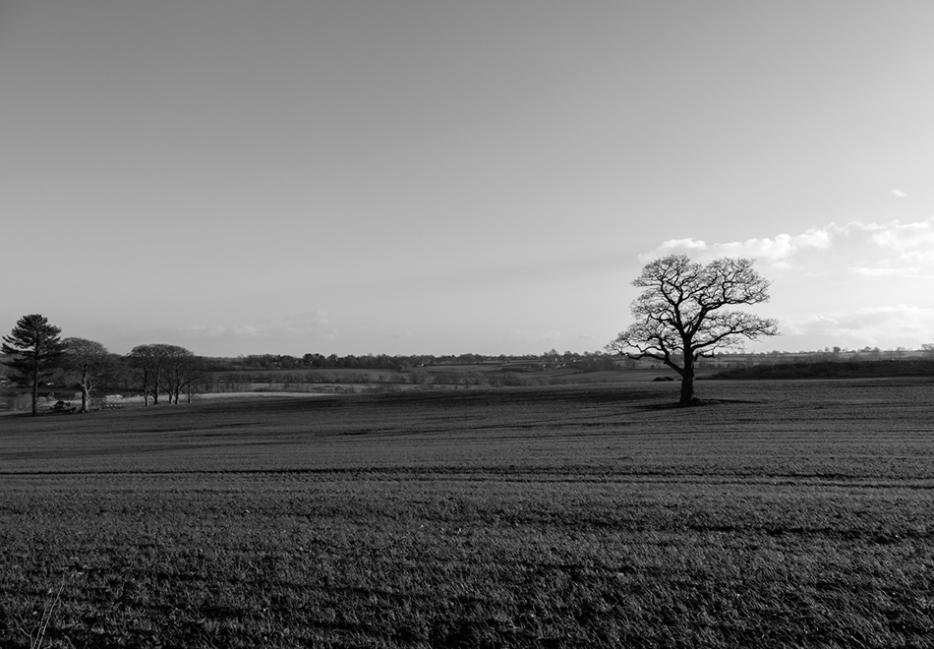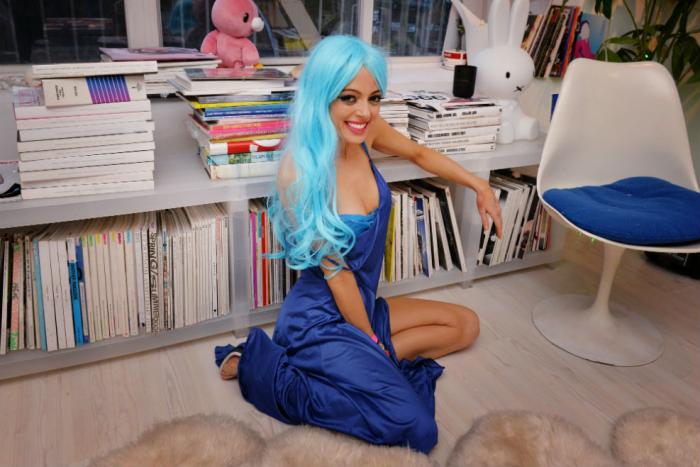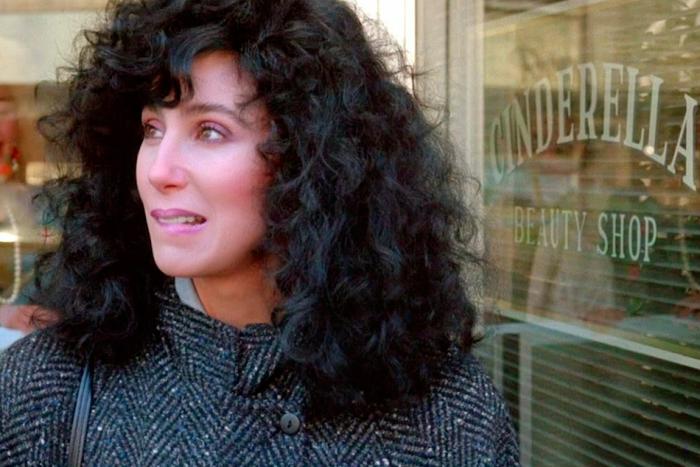Back in December, I read a long article published by The Undefeated about veteran boxer Shannon Briggs’s bid to remain relevant at age forty-five. The essay was thoughtful and engaging; I shared it on Twitter, followed its author, Brin-Jonathan Butler, and reached out to thank him for writing it. He wrote a nice note in return and followed me back. It was as simple and pure as such interactions can get: I had appreciated a story and was able to immediately share that appreciation with the story’s creator.
But it’s also not that simple. I’ve rarely bothered to do this, even though I always could. All the tools for such communication have been at my disposal; I wasn’t even six seconds of typing removed from Butler or anyone else. Yet the possibilities afforded by instantaneous contact were akin to the millions of streaming media options now at my fingertips. Sure, those songs and movies were there, which was nice, but they would always be—I could focus on other things, much as I did fifteen years earlier when I’d stare at a stack of Criterion Collection DVDs, certain that I’d watch them one day and they’d be so great. I was forever a few minutes away from being grateful, secure that I could and should say these things if I desperately needed to, if it came down to it. You know, if I wasn’t too busy with everything else.
And I was busy. Hercules didn’t have labors as weighty as mine. Mere moments after contacting Butler, I dived right back into the social media nastiness. I hate-read op-eds by out-of-touch New York Times columnists. I “liked” vicious 140-character attacks on political opponents and retweeted crude jokes about stupid celebrities. Such antisocial behaviors, performed in conjunction with my virtual friends, were as comfortable as an old pair of tennis shoes. I shared the worst garbage, not caring about giving the offending publication cheap clicks or reading so much as a sentence beneath the headline. Milo Yiannopolous and Debbie Wasserman Schultz were no different than St. Francis and Cesare Borgia to me. Online justice had to be served, an all-you-can-eat buffet of virtual frontier beefs I would never squash because, my goodness, how easy it was to hate! The notifications of one’s wit and probity accumulating with each new slam, snap, and smash—a quick electronic fix for all of us junkies. Gratitude took work and forethought, and thus could be forestalled indefinitely while I binged on nostalgia de la boue, ressentiment, schadenfreude, and any number of other imported terms that described this sort of slumming.
At least in my case, and perhaps in yours, such behavior didn’t originate on social media. I was born and raised to hate, even amidst the enforced morality of mass and Catechism and in spite of my mother’s incessant self-abnegation. My lout of a father would come home from work, on those rare days he happened to be working, and he’d bring the world to a screeching halt with a killer line like, “You ought to be thanking that big man in the sky that I’m not strangling you,” or, “I’m gonna murder every single one of you, and then I’m gonna blow my own brains out.” He was, I suppose, trying to enforce his own twisted view of what constituted gratitude, and when divorced from their context, such remarks could be considered humorous in a Ralph Kramden, “why I oughtta…” way. But there was nothing funny about the abuse that followed.
And, man, were they ever effective. One “I ought to rip your heart out and feed it to the dog” from the old man had a much greater impact than twelve or fifteen hours of domestic bliss. A single relapse into the drunkenness of his youth and middle age could mar a month’s worth of summer vacation in Key West. Hate was fast and punchy, and those fast, hateful punches could overwrite the pleasures of a day spent fishing on the Ocracoke Sound. Perhaps I could be grateful for that outing, but why? And to which parent would I express that sentiment?
As a little boy, helpless and almost entirely alone, I tried not to hate, or at least to not think about hating. I was pulled out of second grade and would go on to be homeschooled for most of my elementary and middle school years, a rigorous curriculum that consisted of being left to complete written assignments while my mother was teaching fourth grade at the public school. We needed the insurance, she reasoned, and I needed the space. “Be grateful that you have some privacy,” she would sometimes tell me, although I had no idea what I meant.
I was nine years old. I’d sit by myself on the leather couch in our living room, surrounded by books: my father’s pocket book-sized science fiction collection from college, my half-brother’s schlocky Clive Barker and Stephen King tomes, and my mother’s OED-thick horoscope manuals from the mood-rocking 1970s. I did have real schoolwork to do, mathematics handouts and such, but I’d hurry to complete those so I could delve into that vast garbage heap of lowbrow literature, loving every precious second I spent learning about “the Taurus man and the Pisces woman” (I was a Taurus and my mother was a Pisces, you see) or following the pseudo-profound adventures of Milo and Tock the watchdog in the world of The Phantom Tollbooth. I was grateful to have these books, in the sense that I prized my access to them, but I never talked to anyone about that. This was my secret life, such as it was, and this literature placed an impermeable barrier between me and the outside world.
We lived then in a small town in an impoverished part of coastal North Carolina. My parents, who had never actually married, were in the middle stages of a long and bitter separation. My half-brother had to run my father’s car dealership. No one was home; no one was present; no one cared. I had a key to the house and shelves stocked with Cheetos. And, to be perfectly candid, I had no desire to see my family or anyone else. I assumed all families were like mine, domestic gulags the interiors of which were clouded by the miasmal exhalations from a thousand futile screams—why would I want any more of that?
Supposedly “normal” stages of human existence—birth, friendship, dating, intimacy—seemed like the stuff of fiction. Marriage was the kind of thing that happened in the lives of English public school children waylaid in Narnia or quaint, eccentric hobbits holed up in Middle-Earth, not here in this crummy world, among the flawed and fallen. But part of me was grateful they transpired somewhere, even if those somewheres existed only in the stories that helped me escape from reality.
These books, like the television shows and music videos I watched, bore so little resemblance to life in rural North Carolina that they may as well have fallen from the heavens or materialized out of thin air. The notion that such artifacts might have had creators, living humans who wrote or performed them, never occurred to me. I knew full well that major sporting events were real, since my father, a retired professional athlete, had dragged me to plenty of them, but that was the extent of it. Art, by contrast, had as much substance as air, and served a precisely similar purpose: unwitting, unseen sustenance, lest I shuffle off this mortal coil.
Who was Madeleine L’Engle? Just a name on a product cover, no different than Louis Sachar or Ursula K. Le Guin. In the 1980s and early 1990s, we Gen-X children had no electronic lifeline that tied us to the rest of the world. The culture we scraped together—a single copy of Pro Wrestling Illustrated here, a packet of Upper Deck baseball cards there—was often all the information we had. I owned a VHS tape of Starrcade ‘86: The Sky Walkers, but the wrestling matches and the storylines that had precipitated them remained a mystery to me.
While I devoured this material, I survived entirely in the now, from parsec to parsec, and was thankful for every passing moment. Since hate would be my undoing, I understood I needed to be grateful for the time I still had. “Time is a gift, given to you, given to give you the time you need, the time you need to have the time of your life,” Norton Juster had written in The Phantom Tollbooth, and I obsessively underlined and circled that quote. Like one of those paradoxical anecdotes used in Zen Buddhism to demonstrate the inadequacy of logical reasoning, the line meant nothing, so in due course it became my little bit, my only bit, of everything. I just assumed each impending tomorrow would be my last and acted accordingly.
As it happened, I came to terms with the inevitability of death shortly after I was pulled out of second grade and left to my own devices. I didn’t want to die, and I’ve always felt bad for those individuals, like my mother, who attempted to take their own lives, but I steeled myself for the bitter end. If my father decided to kill me—and by then I assumed he would, having already seen what he was capable of—I would accept it. I would accept it in the near term; I would accept it in the far term; I would accept it as it came and do nothing to challenge it. Death wouldn’t change who I was, much less alter the basic fact of my having existed. No, it would just happen and I would die wondering what it had meant. “No regrets except all of them,” as dad often said. He never spoke explicitly about gratitude, so this particular koan was probably as close as he ever got, a phrase not far removed from the “I hope you enjoy reading this paper as much as I enjoyed writing it” message with which I had prefaced emails to professors.
Now flash-forward to 2017: I’m still sucking wind, in my father’s parlance; still painfully mired in the time of the now. I had spent the past decade becoming a historian, in principal part so I could learn to swim in that shit pit of memory most people preferred to fill with hopes and dreams. And while I could perform all of those memory-strokes with ease, I remained unable to contemplate the future. In spite of that, the future kept passing me by, inaugurating an age of wonders. A veritable Library of Alexandria was now accessible through the WiFi router and the ethernet jack, all the stories and songs and pictures I could possibly desire and far more than I could ever actually experience, along with a chance to virtually meet and applaud their creators. Humankind’s highest achievements were at my fingertips, but I mostly used those fingertips to type snarky, lifestyle brand-building tweets about how rotten everything had become.
And it was rotten, of course. But I was a historian, and those books I had read in preparation for my PhD examinations reminded me that it was always rotten, always a dystopia, always terrible for someone, always much worse for that someone than it ever was for you or me. The past wasn’t so much an alien country as a charnel mound; everyone wound up dead, few of them willingly. I tweeted snark yet was still the same traumatized person I had been, the same man whose fear-shocked brain demanded that he remain thankful for every moment. But I rarely said thanks—until that one day I did.
But after interacting with Brin-Jonathan Butler, I paused to marvel at the smallness of the post-industrialized world. I could say thank you to anyone I could find, anyone I wanted to thank, and, should they feel inclined, they could respond. Thanking someone was challenging because it required an affirmation, a conscious effort on my part, but I needed to muster that energy. Although this was a small world, it was entirely unlike the small world I had once occupied—the difference between a windowless isolation cell and a self-propelled Mercury capsule, traversing time and space.
If my childhood isolation cell had come equipped with social media, would I have used it to contact those named creators, those anonymous somebodies, whose best efforts kept me entertained? And if, say, Maurice Sendak had responded, what then? Maybe that place from which his correspondence came, one of those mysterious big cities where adults made things besides money and touchdowns, would have become fixed in my mind as a literal refuge as well as a figurative one.
To give thanks is to give everything that’s left of yourself, albeit at the highest cost: time from your life. To receive that thanks is to affirm the possibility of communion, connection, and forgiveness. My father never apologized or thanked anyone; what, pray tell, did he have to feel sorry about or be thankful for, in this doomed and soul-deadening country? His hate, which fueled my own, was as cheap and potent as his Stetson cologne. Transferred first to chatrooms in the late 1990s and then to other, more public forums in the 2000s, that hate let me punch through figurative walls the way he once punched through literal ones.
The thinkpieces about our relationship to information technology go like this: social media is fundamentally antisocial media, because hateful content drives out nice content and we’re all nasty pieces of work at heart. We long for the day when robots will replace our friends and lovers, when our information feeds will consist only of our own bons mots and mots justes—not so much messy troughs at which to feed as spotless mirrors reflecting us in all our solipsistic glory.
It’s understandable to occasionally think this way, given humanity’s sorry track record. We’re batting well below the Mendoza Line in that regard, with no likelihood of improvement during the upcoming season. Yet now we have these amazing tools at our disposal: cybernetic mechanisms that are employed most easily to convey dismissiveness and loathing, but that can also allow us to say to billions of other people, “You matter, your work matters, your life matters. I know you exist, and for however many characters this social media application gives me to tell you the truth: you made me feel something that wasn’t hate, that in fact was hate’s opposite, that was almost a little love, or just.”
In such a callous world, expressing gratitude constitutes guerrilla warfare against the status quo.






